Tunisians are glad that President Zine El Abidine Ben Ali, who fled the country amid massive demonstrations last week, has been ousted, but they are keen to see the country up-and-running again. However, confusion reigns in many banks and official departments, there are still protests on the streets of Tunis, and the current caretaker government is in a precarious position.
Middle East & North Africa Archive
Free Newsletter

In pursuit of Foreign Minister Ahmet Davutoglu’s concept of strategic depth, Turkey has been reaching out to rising powers in Asia while at the same time offering itself as a mediator in disputes in its near abroad. As part of this approach, Turkey is leveraging its longstanding ties with Pakistan and its stature as one of the few industrialized countries in the Muslim world to create a diplomatic role for itself in Afghanistan. But in a sign that Ankara’s geopolitical outreach cannot transcend regional fault lines, Turkey kept India out of the January 2010 tripartite summit on Afghanistan at Pakistan’s […]
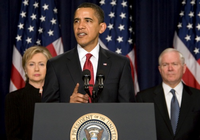
The Obama administration has been transmitting a relatively clear set of signals regarding its policy toward Afghanistan ever since the strategic review was completed in December 2010: Progress has been made, but it is “fragile” and “reversible.” According to this argument, since U.S. and allied efforts are showing the first green shoots in terms of being able to train and deploy Afghan security forces that could end up holding territory on their own, it would be irresponsible to change course now. The current strategy must be given sufficient time to play out, even if that does not neatly dovetail with […]
Despite emergency meetings this week, the Lebanese government has effectively collapsed following the resignations of 11 government ministers from Hezbollah and its Lebanese allies. The row that led to resignations is over a UN investigation into the murder in 2005 of Rafik Hariri, father of the current Lebanese prime minister. Last minute meetings with Saudi Arabia and Syria to resolve the deadlock also failed.
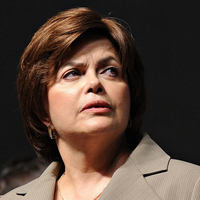
When Brazilian voters went to the polls last year, they voted for continuity. In electing Dilma Rousseff, a 63-year-old technocrat who had never run for office before, they responded to the pleas of their popular outgoing president, Luiz Inácio Lula da Silva. Lula, as he is known, had made his preference clear. “A vote for Dilma is a vote for me,” he told them, with both leaders promising that she would continue moving Brazil down the same path. When it comes to foreign policy, Dilma, as Brazilians call their new president, has also said she will follow her predecessor’s line. […]
I had the pleasure of participating on France 24’s panel discussion program, The World this Week, on Friday. The other guests were Matthew Saltmarsh of the IHT, Paul Taylor of Reuters, and Régis Le Sommier of Paris Match, and the topics we discussed included the Republican takeover of Congress, the situation in Côte d’Ivoire, and the protests in Tunisia and Algeria. Part one can be found here. Part two can be found here.
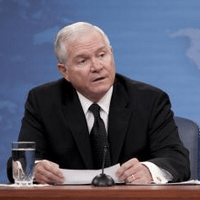
U.S. Defense Secretary Robert Gates unveiled his much-anticipated budget cuts last Thursday, signaling the beginning of the end of the decade-long splurge in military spending triggered by Sept. 11. Gates presented the package of cuts as being the biggest possible given the current international security landscape, warning that any deeper reductions could prove “potentially calamitous.” Frankly, I find that statement hard to swallow. How can America basically match the rest of the world’s defense spending combined, and then describe anything less as “potentially calamitous”? Clearly, given the “nation’s grim financial outlook,” as Gates himself put it, we’re going to have […]
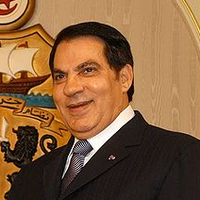
The Middle East and North Africa welcomed the New Year with a rare phenomenon: protests in an arc stretching from Algeria to Kuwait, directed against repressive regimes at home rather than a foreign power. The protests are a rare outpouring of pent-up frustration and anger at discrimination and failed economic and social policies as well as corruption in a region that is governed by authoritarian governments intolerant of public criticism. It is too early to conclude that the protests signal a milestone after which Middle Eastern population groups no longer quietly endure repression and economic deprivation and instead increasingly and […]
I’ve been thinking a lot recently about the changing nature of power in the emerging geostrategic landscape, and one theme that I find myself returning to repeatedly is that of hub states. The idea being that in an increasingly integrated world, the best way to advance strategic interests is to maximize connectedness. But although connectedness is in itself valuable, some kinds of connectedness are more strategically valuable than others. So the key is to be a node that is highly integrated not just within the network, but within the right parts of the network. Now, like the old gag about […]
John Mearsheimer’s National Interest piece titled, “Imperial by Design,” has been getting a bit of attention, although less than I assumed it would judging from the attractiveness of its thesis in war-weary times. Although I agree in principle with the prescription, I found the diagnosis poorly argued. Mearsheimer declares that the U.S. has pursued a grand strategy of global dominance since the end of the Cold War, culminating in the Bush administration’s decision to remake the Middle East in its own image. He argues instead for a strategy of offshore balancing intended to economize American power and resources without abandoning […]
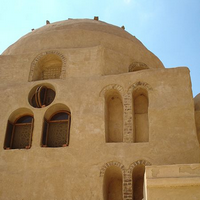
The holiday season has now ended, but not without leaving behind a trail of devastation and a rising sense of anguish among Christian communities in the Middle East. A series of deadly assaults and ominous threats — most dramatically the New Year’s church massacre in Alexandria, Egypt, and a threat from al-Qaida in Iraq to “open the doors of destruction and rivers of blood” upon Christians — have raised fears that Christianity may not survive in the region of its birth. The depth of the anxiety comes through in the words of Lebanon’s former-President Amin Gemayel, who declared, “What is […]
The consensus has it that the big winner of the Iraq War was Iran, in that the toppling of the Saddam Hussein regime removed the major barrier containing Iran’s regional ambitions. Certainly the Shiite-dominated and Iran-friendly government in Baghdad has freed up Tehran’s hand across the region — even if, as I’ve argued before, the inherently volatile nature of Iraqi politics means that Iran has inherited some time- and energy-consuming responsibilities in Iraq along with its increased influence. But I’d argue that the fears among Middle Eastern Arab states of Iran’s growing regional reach have more to do with their […]
The New Year’s day bombing of a church in Alexandria, Egypt, has prompted frustration among many in the country’s Coptic Christian community and lead to several nights of angry street protests. The bombing was the worst in a decade and its aftermath is still being felt, with MENA, the official Egyptian news agency, reporting on Tuesday that the death toll had risen to 23.
Turkey has been pursuing an active trade agenda in South America recently. Bilateral deals negotiated or ratified in the past two months include an oil agreement with Venezuela, a free-trade agreement with Chile and a taxation agreement with Brazil. In an e-mail interview, Gareth Jenkins, senior associate fellow with the Silk Road Studies Program and Turkey Initiative, discussed Turkey-Latin American relations. WPR: What is the extent of Turkey’s diplomatic and trade ties with South America? Gareth Jenkins: During the Cold War, Turkey’s ties with South America were so limited as to be almost nonexistent, but a 1995 visit by Turkey’s […]
